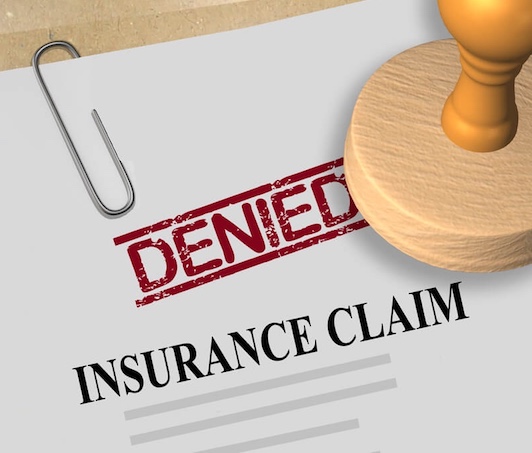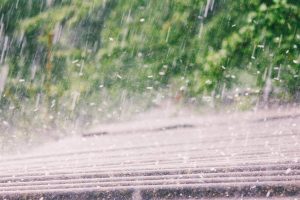Tuesday, August 28, 2018
Understanding Overhead & Profit For Insurance Claims
Watch on YouTube here: Understanding Overhead & Profit For Insurance Claims
Via https://www.youtube.com/channel/UCcZImr64sN4bR4BB_JA82vg/videos
Building Hope, Providing Play
A child’s curiosity, imagination and adventurous spirit can often be inspired through outdoor play. But Esther Silva was stuck inside looking out at a world just out of her reach.
Esther, 4, was diagnosed with acute lymphoblastic leukemia just before her third birthday.
“Esther’s diagnosis was a horrible day in our lives,” says Esther’s mother, Claudia Silva. “She was so young and weak. She lost her hair twice. Her side effects were the worst because she was so upset from the chemo and how it was affecting her, but she couldn’t explain with words what was wrong.”
But one of the unforeseen side effects was isolation. Due to chemotherapy treatments, Esther spends most of her time at home.
“Every time we went...
[Read More ...]
Having a problem with a flood claim? Learn What ClaimsMate.com Can Do For You
Building Hope, Providing Play was originally posted by ClaimsMate.com Insurance Information Resources
Monday, August 27, 2018
Insurance Company Unfair Claims Settlement Practices
 Unfair claims settlement practice is the improper avoidance, or reduction of a claim by an insurance company. There are many methods or tactics that insurance companies might use to unfairly handle the settlement of claims, and it unfortunately happens quite often. There are also laws in place to protect consumers from unfair treatment during the process of insurance claim settlements.
Unfair claims settlement practice is the improper avoidance, or reduction of a claim by an insurance company. There are many methods or tactics that insurance companies might use to unfairly handle the settlement of claims, and it unfortunately happens quite often. There are also laws in place to protect consumers from unfair treatment during the process of insurance claim settlements.
We've provided details below to help better understand unfair claims settlement practices, what to look for, what to avoid, and what you can do if you believe your insurance company is treating you unfairly.
How Does Unfair Claims Settlement Practice Work?
When you buy an insurance policy, you’re signing an agreement with your insurance company. That agreement states that your insurance company is legally required to cover certain damages when they take place under certain circumstances.
When an insurance company engages in unfair claims settlement practices, it’s attempting to reduce its costs by denying or limiting your claim.
Under an insurance contract, both parties, the insured policyholder (you) and the insurer (insurance company), have an obligation to act in good faith and behave reasonably. Unfortunately, insurance company bad faith tactics are more common than many people realize.
Obviously, unfair claims settlement practice is illegal in all state jurisdictions, and consumers may have to fight for their rights in order to be covered or to obtain a fair settlement from their insurance company.
How to Prove Unfair Claims Settlement Practice
How do you determine when unfair claims practice takes place? the National Association of Insurance Commissioners (NAIC) has created model unfair claims practice legislation that requires claims to be handled fairly.
One of the key requirements of this legislation is for clear communication between the insurer and the insured. Because of this legislation, many states have implemented unfair claims settlement practice laws, making it easier for consumers to receive coverage from their insurance company – even if that insurance company is acting in a deceptive or malicious way.
States have different laws regarding unfair claims settlement practices, and different states have different rules for how it’s defined.
In most states, however, unfair claims practice is defined under something called the Unfair Claims Settlement Practices Act (UCSPA), which protects insurance buyers from bad behavior by insurance companies.
It’s important to note that the UCSPA is not federal law, and the specifics of the law vary widely between states. The stories you hear about unfair claims practice in one state might not hold true in another state.
Common Examples of Unfair Claims Settlement Practice
Insurance companies across the United States engage in unfair claims settlement practices every day.
 Some violations are severe: like when an insurance company denies a total loss claim entirely. In most cases, however, unfair claims practices consist of minor offenses or denials of coverage. The insurance company is often hoping you don’t notice these offenses, thereby saving them money.
Some violations are severe: like when an insurance company denies a total loss claim entirely. In most cases, however, unfair claims practices consist of minor offenses or denials of coverage. The insurance company is often hoping you don’t notice these offenses, thereby saving them money.
In other cases, insurance companies engage in unfair claims practices simply by delaying, and continuing to delay a claim.
Examples of unfair claims settlement practices include:
The Insurance Company Delays Payment on Small Business Insurance
Let’s say a business owner buys a commercial property insurance policy. This policy protects his company’s building and business personal property. There is a fire in the building, causing $200,000 in property damage. The insurance company delays the claim and avoids covering the $200,000 promptly. The business owner is unable to repair the damage. The insurance company continues to delay. They might use methods of delaying such as claiming they forgot to send claims forms and not responding to calls. Or, the insurance company might insist they never received proof of loss, when you’ve already sent multiple proofs. These are all situations unfair claims settlement practice laws are meant to prevent.
The Insurer Misrepresents The Policy
In other cases, an insurance company might misrepresent a policy. They might claim certain things are not covered – when in reality, they’re covered explicitly in your policy. Unless you’re an insurance expert, you may not understand the terms of your policy, and you’re left uncovered for things that should genuinely be covered under your insurance policy.
The Insurance Company Made a Significant Alteration To An Application Or Policy
In some situations, insurance companies take part in unfair claims settlement practice by making significant alterations to an application or insurance policy – without consent or notification – after it’s submitted. For example a claim is submitted to cover $50,000 in property damage. The insurance company approves the claim – but they’ve modified the amount of coverage to be just $40,000. The insurer then refuses to pay the additional $10,000.
The Insurance Company is Paying Less Than Reasonably Expected
In other cases, an insurance company may be participating in unfair claims settlement practices by paying less for a claim than what someone would reasonably expect to receive. The insurance company might have lured a customer in with an advertisement for a cheap flood damage insurance policy, for example. Then, when a claim is made on that insurance policy, the customer learns that paying an additional premium was needed to get the coverage advertised in the original ad.
How to Identify Unfair Claims Settlement Practices
Unfair claims settlement practices laws vary between states. Generally speaking, however, a state’s UCSPA will focus to have protections in place for misrepresentation or alteration, timeliness, unfair acts, unfair requirements and overall deceptive claims handling.
Misrepresentation or Alteration
An insurance company might misrepresent or alter an insurance policy in various ways, leading to allegations of unfair claims settlement practices. Some of the ways a company does this is by:
• Misrepresenting relevant facts or policy provisions, including changing specific aspects of your building ordinance; your policy might state building ordinance coverage is included, but your insurer insists it’s excluded
• Making a significant alteration in an application without your consent, then settling a claim based on that alteration; the insurance company might claim you requested a $50,000 limit on your insurance policy when in reality, you requested a $100,000 limit
• Settling claims for less than you would reasonably expect based on the conditions outlined in your application
Timeliness
Some insurance companies engage in unfair claims settlement practices when they waste time, drag their feet, or take too long to respond to inquiries and claims. Examples of this include:
• Failing to respond promptly to communications from insurance customers; if you filed a claim six months ago and haven’t had a response from the insurance company, for example, then your insurance company might be engaging in unfair claims practices related to timeliness
• Failing to confirm or deny coverage within a reasonable time period after the insurer finished its claim investigation
• Failing to provide a prompt explanation after denying coverage or offering a low settlement
• Failing to provide claim forms within a specified period of time
Unfair Requirements
Some insurance companies will place unfair requirements on customers, including:
• Insurance companies will offer a ludicrously small settlement amount, forcing the policyholder to sue the insurer if they want full compensation
• Other insurance companies will require excessive or redundant proof for every claim, like a proof of loss form and a loss verification; this delays the claim and reduces the likelihood of the customer receiving compensation
Unfair Acts
Finally, some insurance companies engage in unfair claims settlement practices through unfair acts, including:
• Refusing to pay claims without conducting a reasonable investigation; the insurer may deny your claim after an adjuster performs a single, cursory check of the damages, for example
• The insurance company might deny that the incident ever occurred, or they may refuse to send an adjuster to your property to inspect the damages
• The insurance company fails to pay your fair settlement promptly even though you’ve submitted a valid claim
What Should You Do? Consider Hiring a Public Adjuster to Handle Your Insurance Claim
Many people assume their insurance company is dedicated to protecting its customers and have their best interests in mind. In reality, an insurance company is a for-profit corporation that is more likely to be dedicated to protecting its bottom line.
When an insurance company engages in unfair claims settlement practice, it’s crucial that you fight back and avoid becoming a victim of an unfair settlement.
Consider hiring a public adjuster to help. A public insurance adjuster can handle your insurance claim from beginning to end or assist with negotiations, appraisals and understanding your coverage under the insurance policy. If you feel that your insurance company is participating in unfair claims settlement practices then a public adjuster can be your first line of defense and help determine what the next best course of action should be for your particular situation.
See Full Article Here: Insurance Company Unfair Claims Settlement Practices
Wednesday, August 8, 2018
Important Things You Need to Know About Roof Hail Damage Insurance Claims
 In states like Texas and Colorado, it’s not uncommon to get hail the size of golf balls or larger, which can lead to plenty of hail-related insurance claims. Colorado is experiencing hailstorms more frequently, and with larger sized hail. Colorado had record breaking losses from hail damage in 2017 and repeated devastating hailstorm damages in 2018 - with hail as large as 4 inches in diameter showing residents in Denver, Fort Collins and Colorado Springs the worst hail storms they have seen in decades.
In states like Texas and Colorado, it’s not uncommon to get hail the size of golf balls or larger, which can lead to plenty of hail-related insurance claims. Colorado is experiencing hailstorms more frequently, and with larger sized hail. Colorado had record breaking losses from hail damage in 2017 and repeated devastating hailstorm damages in 2018 - with hail as large as 4 inches in diameter showing residents in Denver, Fort Collins and Colorado Springs the worst hail storms they have seen in decades.
Today, we’re talking about one of the most common hail damage insurance claims: roof hail damage. Was your roof damaged in a hail storm? Here are the most important things you need to know about filing an insurance claim for hail damages.
If you need help handling, negotiating or determining if you are covered for an insurance claim related to hail damages, a public adjuster can help.
[big_contactus]
What To Do Immediately After The Storm
If you just experienced a hailstorm and are wondering how to proceed, here are some important things to keep in mind in the aftermath of the storm:
-Note the date and exact time of the storm, including when you believe damage to your property occurred
-Take photos of your yard, home, and property after the storm, being sure to focus on areas of damage
-Look for obvious signs of damage on your roof, like missing or torn shingles
-Grab your tape measure (or some other measurable object, like a golf ball) and place it next to hailstones on the ground, then take pictures.
-Take a picture of your outside air conditioning unit, as hail can wreak havoc on air conditioners (they can dent and block cooling fins, blocking the air flow)
You Don’t Need A Leak to Have Hail Roof Damage
Some homeowners mistakenly think that their roof is fine after a hail storm because they don’t have any leaks.
That’s not true: you can still file an insurance claim on a damaged roof without a leak. Don’t wait for a leak to appear before you file a claim. Most roof hail damage insurance claims do not involve leaking roofs.
Contact A Roofing Contractor or Public Adjuster
Before you contact your insurance company, get in touch with a roofing contractor or a private insurance adjuster to assess the damage to your home. This assessment should be free: roofing contractors and public adjusters consider these assessments a cost of doing business, and they base their work on whether or not your insurance claim will be approved.
When looking for a roofing contractor, be sure to contact one who is factory-certified (GAF Master Elite and CertainTeed Premier are the two most common certification systems for roofers in America). Then, check the Better Business Bureau or other review sites online to ensure the roofing contractor is honest and provides high-quality service.
Make an appointment with the contractor, be at home during the inspection, and make sure the contractor knows that no repairs will be made during this time. Also, make sure to point out to the roofing contractor the specific areas of damage.
One thing to keep in mind is that in most states that require public insurance adjusters to be licensed, it is illegal for a roofing company or contractor to negotiate insurance policy related issues.
[big_contactus]
Contact Your Insurance Company
Take a look at your insurance policy and then contact your company. Organize your records, facts, and photographs. Give your insurer the necessary information. You’ll receive a claim number.
If your insurance company refuses to honor the claim or is being difficult, then consider contacting a public adjuster to help defend your case.
Contact A Public Adjuster
Remember: ClaimsMate specializes in hail damaged roof insurance claims across the United States. If your home’s roof was damaged in a recent hailstorm, then ClaimsMate can help. Our public adjusters work diligently to maximize your claim and fight back against your insurance provider. If your provider is refusing to cover your hail damage repair for any reason, get help by contacting ClaimsMate today.
Post Source Here: Important Things You Need to Know About Roof Hail Damage Insurance Claims
Wednesday, August 1, 2018
The August issue of I.I.I.’s Latest Studies Digest
The August issue of I.I.I.’s Latest Studies digest is now available.
In this issue:
- PwC on insurance M&As in Q2 2018
- J.D. Power’s insurance digital experience survey
- Aon’s global catastrophe recap, first half 2018
- Allianz’s safety and shipping review
And much more…..
[Read More ...]
Having a problem with an insurance damage claim? ClaimsMate.com/
The August issue of I.I.I.’s Latest Studies Digest was originally posted by ClaimsMate.com Insurance Information Resources
Stay Safe from Wildfires
If you are a part of a mandatory evacuation:
- Stay tuned: follow news reports and information from first responders
- Safety first: material things can be replaced but the loss of life or serious injury can't be fixed.
What to expect from the claims process: we will work with you closely to resolve your claim.
- If you suffered damage, start your claim as soon as possible: contact your agent, call 1-800-SF-Claim, go to st8.fm/File-a-Claim or use our State Farm mobile app.
- Keep living expenses receipts: they may be reimbursable after meeting your deductible.
 Customers impacted by wildfires can contact their local agent, call 1-800-SFCLAIM (1-800-732-5246), or visit st8.fm/File-a-Claim to start the...
Customers impacted by wildfires can contact their local agent, call 1-800-SFCLAIM (1-800-732-5246), or visit st8.fm/File-a-Claim to start the...
[Read More ...]
Having a problem with a fire claim? Read More About How ClaimsMate Can Help
Stay Safe from Wildfires was originally posted by ClaimsMate.com Insurance Information Resources
